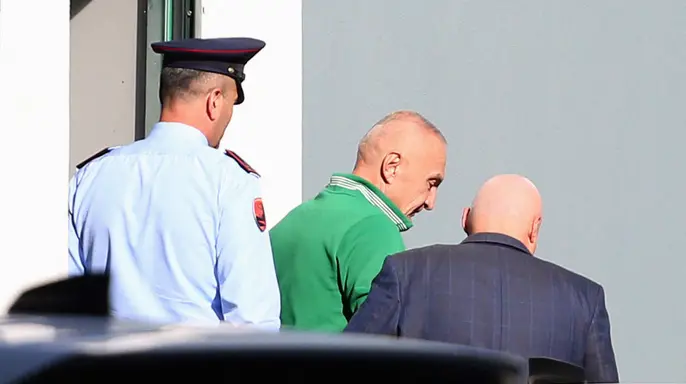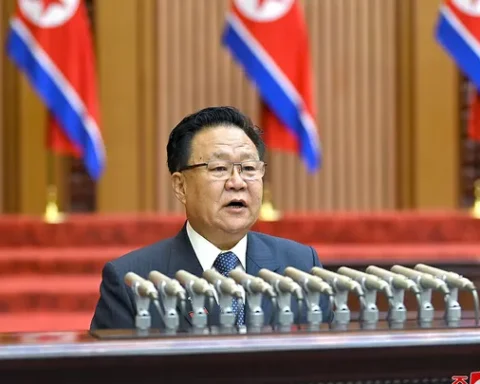Albania is once again in the spotlight following the arrest of former President Ilir Meta on corruption charges. The unfolding events raise serious questions about justice, political motives, and the stability of this Balkan nation. Meta’s detention highlights Albania’s struggle with deep-rooted corruption and political rivalries, which could shape the country’s future ahead of the 2025 elections.
A Former President Arrested Amid Political Tensions
Ilir Meta, who served as Albania’s president from 2017 to 2022, was arrested on Tuesday in Tirana on allegations of money laundering, corruption, and concealing income. Meta, once a close ally of Prime Minister Edi Rama, now leads the opposition Freedom Party and has become one of Rama’s fiercest critics.
Meta’s dramatic arrest, conducted in broad daylight and witnessed by crowds filming on their phones, drew accusations of political showmanship. “It was an act of political showmanship, with dozens of armed personnel arresting the former President forcefully in the middle of the day,” said Agim Nesho, a former Albanian ambassador to the U.S. and United Nations.
Opposition Claims Judicial System is Weaponized
The arrest has further intensified political tensions, with Albania’s opposition accusing Prime Minister Rama of using law enforcement as a tool against political opponents. Nesho described Rama as “the most corrupt leader in modern Albanian history,” alleging systematic theft by the current government.
A diplomatic source familiar with the region expressed similar concerns: “The arrest of the former president… indicates that the rule of the current Prime Minister… has taken an increasingly authoritarian bent.” The source added that recent actions suggest Rama might leverage the judiciary for political gain.
Rising Concerns Over Albania’s Democratic Integrity
The broader regional context paints a troubling picture. According to Freedom House, the judiciary in Albania faces political pressure, and due process is often inconsistently enforced. The diplomat further warned that Balkan leaders like Rama and Serbian President Aleksandar Vucic present themselves to the West as proponents of European integration while practicing authoritarianism domestically.
The “Open Balkans” initiative, co-led by Rama, has drawn criticism for potentially undermining European integration efforts. Meta previously voiced his concerns, calling it “an alternative against European integration” that could empower hybrid regimes like Serbia to stifle democracy and media freedom.
Additional Arrests Fuel Political Unrest
Meta is not the only political figure targeted by the government. Another opposition leader, former president and prime minister Sali Berisha, was recently put under house arrest on similar corruption charges. Berisha condemned Meta’s arrest, stating on X, “The Albanian Police… following the orders of Edi Rama, abducted and punched… Ilir Meta. I strongly condemn their monstrous act!”
International Response and U.S. Position
The U.S. State Department weighed in cautiously, reaffirming its support for Albania’s efforts to strengthen the rule of law. “The United States supports Albania’s progress on the rule of law, including the efforts of SPAK to prosecute high-level corruption,” a spokesperson said. However, requests for further comment from the Albanian Prime Minister’s office and embassy went unanswered.
Looking Ahead to Albania’s Political Future
Meta’s arrest has thrown Albania’s internal political climate into disarray and raised questions about its commitment to democracy. With elections approaching in 2025, the stakes are high, and the line between justice and political vendetta remains blurred. Albania’s struggle to balance law enforcement with democratic integrity will be critical in determining its future.







